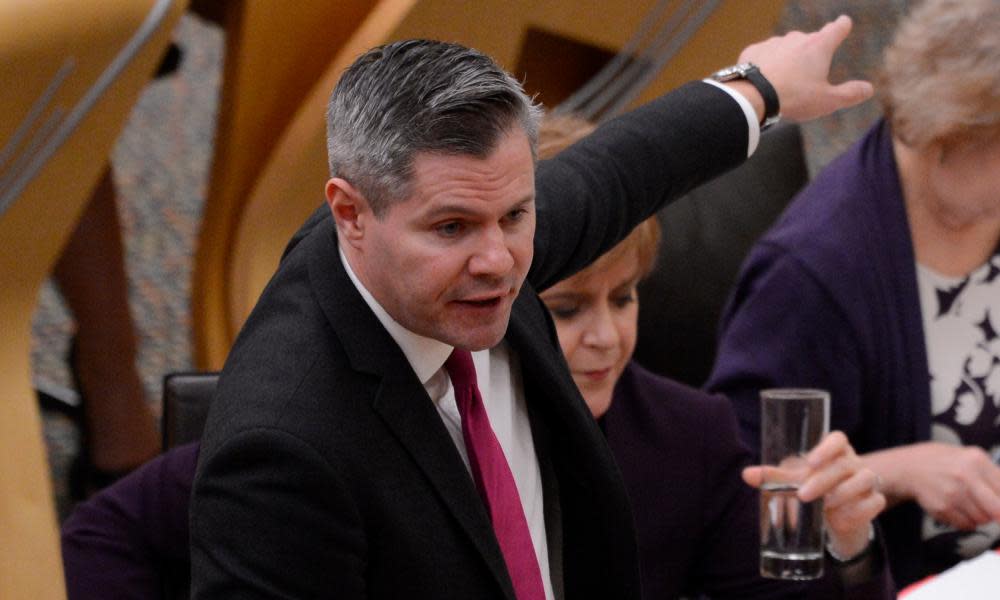Scotland freezes threshold for higher-rate income tax

Scotland’s top earners face higher income tax bills to help finance cuts for the least well-off and an increase in spending on hospitals and nurseries, the Scottish government has announced.
Derek Mackay, the Scottish finance secretary, said he would freeze the level at which higher-rate tax will be paid, which is £43,431, from next April rather than raising that threshold by inflation as promised or matching the Treasury’s plans to start the higher rate with earnings over £50,000.
That would allow him to cut taxes for the lowest earners, by increasing the threshold for the starter and basic rates of tax of 19% and 20% by inflation, up to £12,500 and £14,549 respectively. As a result, 55% of Scottish taxpayers would pay less than their counterparts in the rest of the UK, he told MSPs.
Boosted by a £950m increase in Scotland’s grant from the Treasury next year, Mackay was also able to raise day-to-day spending on health and social care next year by £730m. For the NHS, that meant an increase worth roughly £500m in real terms.
Alongside that, spending on nurseries and early years would grow by £500m by 2021, business rates relief would be extended to 90% of Scottish firms, and public sector pay should increase by 3%, above inflation, for those earning under £36,500, and by 2% for those earning up to £80,000.
Mackay told the Scottish parliament his draft budget strengthened the Scottish National party’s progressive taxation strategy.
“Those priorities will continue to be front and centre of our tax policy in the year ahead,” Mackay said. “Freezing the higher-rate tax threshold will ensure Scotland’s health and care services get the full budget increase they deserve.”
Facing immediate attacks from the Conservatives for squeezing Scottish taxpayers, Mackay offered a detailed defence of Scottish government spending, which is boosted by preferential Treasury funding for devolved administrations. Overall public spending in Scotland is £1,576 higher per head than the UK average.
He claimed that if Scotland’s free personal care for the elderly, lower council tax rates and free university tuition were included, Scottish citizens enjoyed cheaper and better public services. By including the money saved from free personal care, a Scottish pensioner living on £15,000 a year was £9,000 better off than in England.
Murdo Fraser, the Scottish Conservatives’ finance spokesman, said that made it far harder for Scottish firms to recruit talent from other parts of the UK, with everyone earning over £26,000 paying more income tax in Scotland. “This is the price of living in the SNP’s Scotland,” he said.
As a minister in a minority government, Mackay needs the support of at least one other party to get his budget passed next year.
Patrick Harvie, the Scottish Green party leader at Holyrood who has previously backed SNP budgets, said it was astonishing Mackay had not yet offered the reforms to local government funding the Greens needed in order to back the budget. Scottish Labour said the budget was woeful, by failing to increase taxes on the rich.
The Fraser of Allander Institute, an economics thinktank at Strathclyde University, estimated that Scotland’s income tax regime raised about £550m more than the equivalent rates in the rest of the UK.

 Yahoo News
Yahoo News 
